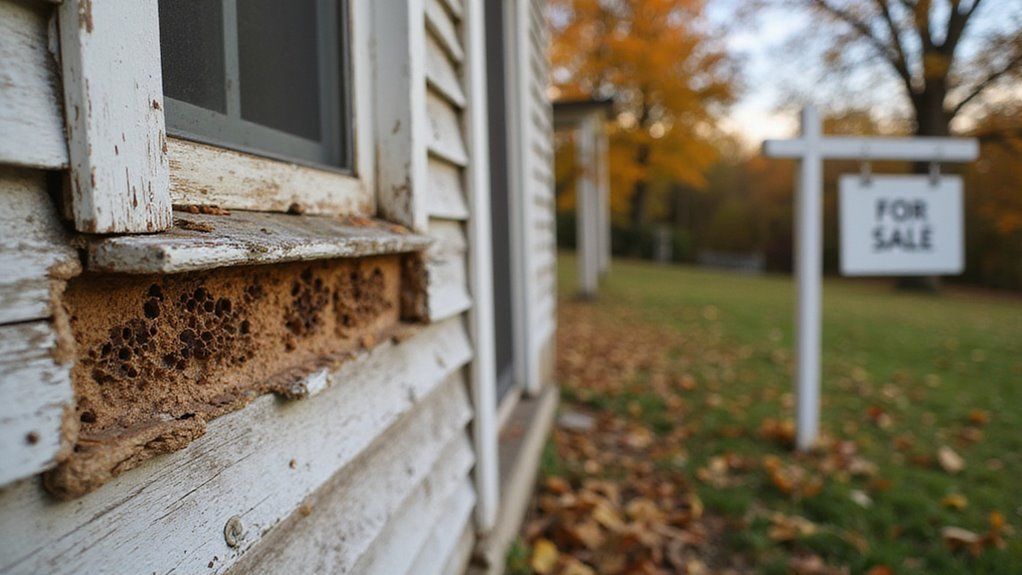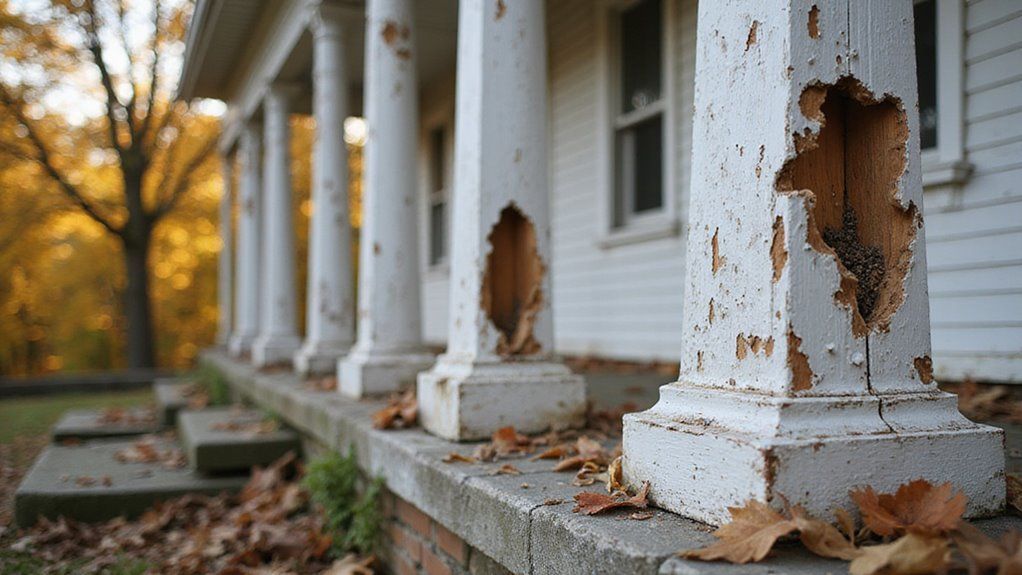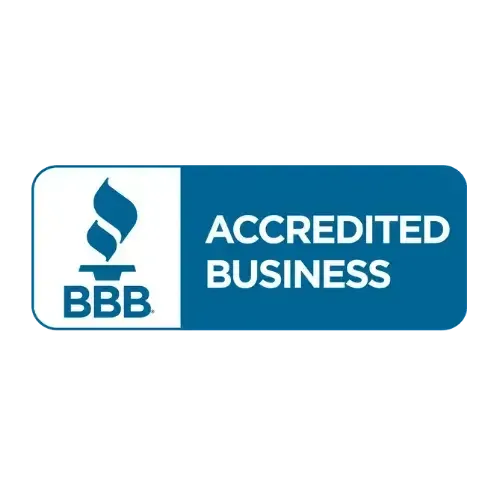Sell Your House With Termite Damage Fast in Pennsylvania

Facing termite damage in your Pennsylvania home feels like watching money crawl away through tiny tunnels. Repairs can reach a staggering $50,000, while property values plummet up to 25% when these destructive pests take hold. Meanwhile, traditional buyers run scared from the disclosure forms and extensive damage reports. Cash buyers offer a lifeline for homeowners trapped in termite-damaged properties.
You can sell your termite-damaged house fast in Pennsylvania by connecting with cash buyers who purchase properties as-is. These investors typically close in 7-14 days without requiring repairs, inspections, or meeting financing contingencies.
In this blog I will explore everything about selling termite-damaged houses quickly in Pennsylvania.
What is Termite Damage and How Does it Affect Home Sales?
Termite damage occurs when these insects eat through wood structures, weakening a home’s foundation and framing. This damage significantly reduces property value and complicates sales.
Warning signs include hollow-sounding wood, mud tubes, and warped door frames. Pennsylvania law requires sellers to disclose any known termite damage before completing a home sale. Many buyers back away when they discover past infestations.
Mortgage companies often request current termite inspection reports before approving loans. Home value typically drops by up to 20% with termite damage. Furthermore, repair costs range from a few hundred to tens of thousands of dollars.
How Much Does Termite Damage Devalue Your Property in PA?
Termite damage typically devalues Pennsylvania properties by 5-25% depending on damage severity. Minor cosmetic issues cause less value loss than structural damage. Active infestations dramatically decrease property worth compared to previously treated problems.
Professional repair documentation helps preserve some value when selling. Pennsylvania homes with termite histories sell for 3-10% less than comparable properties without infestations. Buyers often request significant discounts or repair concessions during negotiations. Proper disclosure remains legally required regardless of repair status.
For better resale value, obtain professional treatment, keep detailed repair records, and adjust pricing expectations accordingly. Cash buyers sometimes accept termite-damaged properties with fewer concessions than traditional mortgage buyers.
Sell Your House Fast in Pennsylvania Without Expensive Repairs, Junk Removal, or Cleaning!!
We buy houses for cash in Pennsylvania! We will make you a Fast, Fair, Cash Offer To Buy Your House As-Is. There’s No Obligation To Accept. We are here to take the hassle out of selling your home.
What Are the Signs of Termite Infestation in Pennsylvania Homes?

Identifying termite damage early helps you understand what you’re dealing with before listing your home. Pennsylvania homes primarily face Eastern Subterranean termites, which leave distinct signs like mud tubes on foundations, hollow-sounding wood, and discarded wings near windows. You’ll also notice structural warning signs including warped doors, sagging floors, and wood that crumbles when touched.
Common Termite Species in Pennsylvania
The Eastern Subterranean termite is Pennsylvania’s primary wood-destroying pest. These insects live underground and enter homes through soil contact points. Early detection prevents costly damage before selling your property.
Eastern Subterranean termites have three distinctive traits. Their colonies contain 60,000 to 2 million members working together. They construct recognizable mud tubes as pathways between soil and wood.
These pests thrive in moist environments, particularly attacking damp wood near foundations. As a seller, you must disclose any termite history to potential buyers. This transparency builds trust and prevents future disputes about property condition.
Visible Damage Indicators
Termite damage shows through several physical warning signs. Damaged or hollow wood makes the clearest indicator—tap wooden surfaces to listen for hollow sounds.
Mud tubes along foundations signal active infestations where termites build protective tunnels. Discarded wings near windows appear after swarmers establish new colonies.
Additionally, doors and windows might stick due to warped frames. These signs often point to structural problems that need expert evaluation.
Professional inspection becomes essential before selling a property with suspected termite damage. Most importantly, early detection can prevent extensive structural harm.
Structural Warning Signs to Look For
Watch for visible cracks or sagging in load-bearing beams. These indicate serious deterioration that threatens structural integrity.
Damaged beams require immediate professional assessment.
Foundation problems appear as uneven floors or sticking doors and windows. Water pooling near the foundation often signals support weakening.
Foundation repairs typically cost $2,000-$7,500 depending on damage severity. Look for warped or broken roof trusses in attic spaces.
Moisture stains on ceilings suggest potential roof structure damage. Contact a certified inspector today for termite assessment. Transparency about structural issues with buyers prevents future legal complications.
Should You Repair Termite Damage Before Selling?
You’ll need to weigh repair costs against possible sale price increases before making this decision. In Pennsylvania, termite remediation typically ranges from $250 to $50,000 depending on damage severity, but repairs don’t guarantee a full return on investment.
Regardless of your choice, state law requires you to disclose all known termite damage to buyers, so understanding both the financial and legal implications is critical.
Cost of Termite Remediation in Pennsylvania
Termite remediation in Pennsylvania typically costs between $250 and $8,000 depending on infestation severity. Localized treatments range from $250-$2,500, while whole-home liquid barrier treatments cost $1,500-$8,000.
Structural repairs add another expense to consider. Wood replacement and reconstruction can add $500-$10,000+ to your total bill. After treatment, professionals will verify effectiveness.
Follow-up inspections usually cost $75-$150 per visit. For accurate pricing, request quotes from several licensed pest control companies. These professionals can assess your specific situation and recommend appropriate treatment options. The final cost depends on your home’s size, infestation extent, and chosen treatment method.
Return on Investment Analysis
Selling as-is to cash buyers often yields better ROI than repairing first. You’ll eliminate renovation costs completely and close the sale faster.
Cash buyers account for property condition in their offers, removing uncertainty from the process.
To determine your best option, calculate both scenarios. Compare your potential profit from a traditional sale (after repair costs) against the immediate cash offer.
Many sellers discover that as-is sales provide more financial benefit. Additionally, you’ll avoid contractor headaches and market fluctuations while waiting for repairs.
Legal Disclosure Requirements in PA
Pennsylvania law requires you to disclose all known termite damage when selling residential property. You must document this information on the Seller’s Property Disclosure Statement before completing any sale. This legal requirement protects you from future lawsuits and liability for repair costs.
Your obligations include noting all known termite damage and previous treatments on the disclosure form. You should also provide any available Wood Destroying Insect Inspection Reports.
Additionally, you must reveal structural problems caused by termite infestations. Following these steps builds trust with buyers. Honest disclosure promotes smoother transactions while protecting your legal interests. Failing to disclose termite issues can result in serious legal consequences.
How to Sell a Termite-Damaged House Fast in Pennsylvania?

Selling your termite-damaged house quickly in Pennsylvania requires a strategic four-step approach. You’ll need to obtain a professional inspection report, price your home competitively based on repair costs, market the property to the right buyers, and prepare complete disclosure documentation. These steps protect you legally while attracting buyers who understand they’re purchasing a property with existing damage.
Professional Inspection and Damage Assessment
Get a licensed pest control professional to inspect your property before listing. This reveals termite damage and helps set the right price. A proper assessment creates legal protection and increases buyer trust.
Your inspection report needs three key elements. First, active infestation status shows if termites are currently present or if damage is old. Second, damage severity details which structural parts are affected and repair costs. Third, treatment recommendations outline necessary fixes and prevention steps.
This honest approach makes you appear trustworthy and speeds up your sale considerably. Buyers appreciate sellers who provide complete information upfront.
Setting a Realistic Price Point
Subtract repair costs from market value to find your baseline price. Buyers typically expect a 10-20% discount on termite-damaged homes.
Start with a competitive price rather than inflating it for negotiation room. This approach attracts serious buyers instead of driving them away.
Transparent pricing reflects your property’s true condition. Cash buyers appreciate honest valuations. They often close deals faster when prices accurately reflect damage.
This creates a win-win situation for everyone involved. Your goal should be a fair transaction that acknowledges existing issues.
A realistic price point helps you move forward efficiently without wasting time on the market.
Marketing Strategies for Damaged Properties
Damaged properties sell best when marketed to cash buyers who accept as-is conditions. Professional inspection reports build trust and show transparency upfront. Lower price points compared to move-in-ready homes create a clear value proposition for buyers.
This honest approach attracts serious investors rather than casual lookers. Cash buyers often waive contingencies and close quickly. Furthermore, they understand renovation costs and structural issues.
Pre-disclosing problems eliminates surprises during negotiations. As a result, you’ll receive more realistic offers from the start. Most damaged property sales close 30-50% faster when using targeted marketing strategies.
Disclosure Documentation Preparation
Gather all termite-related records before listing your Pennsylvania home. You need inspection reports, repair invoices, and treatment records for a complete disclosure package. Photos of damaged areas and contractor estimates should be included.
Arrange these documents in chronological order to show your response timeline. Pennsylvania law requires sellers to document all known termite damage in the Seller’s Property Disclosure Statement. Keep structural repairs separate from cosmetic fixes in your documentation. This organization helps potential buyers understand the history of the issue.
Furthermore, include any ongoing treatment plans or warranties from pest control services. This thorough approach protects you legally while building buyer trust. Your transparency will speed up the sale process. As a result, you’ll minimize the risk of future disputes about termite damage.
What Are Your Options When Selling a Termite-Damaged House?
You have several paths forward when selling your termite-damaged Pennsylvania home, each with distinct advantages depending on your timeline and financial goals.
The traditional listing route, as-is sales to retail buyers, cash home buyer transactions, and investor negotiations all offer different levels of speed, profit capacity, and repair requirements.
Understanding these options helps you choose the strategy that aligns with your specific situation and gets your property sold efficiently.
Traditional Real Estate Listing Approach
A real estate agent gives your termite-damaged home maximum buyer exposure but creates more challenges. The selling process becomes difficult due to disclosure rules and buyer demands.
Get a professional inspection and Wood Destroying Insect Report before listing your property. These documents reveal the full extent of damage. Furthermore, complete all repairs before showing your home to potential buyers.
This approach can increase your selling price by 15-30% and eliminate most buyer objections. Price your home realistically to reflect its termite history. As a result, you’ll attract serious buyers instead of wasting time.
However, be prepared for longer selling timelines. Most importantly, expect mortgage lenders to request extensive documentation about past termite issues.
Selling As-Is to Retail Buyers
You can list your as-is home on the MLS to reach traditional buyers while avoiding repairs. Full disclosure of termite damage allows Pennsylvania homebuyers to make informed choices. The property will appeal to investors, flippers, and buyers willing to tackle repairs themselves.
You must price 10-20% below market value to compensate for the damage. This approach eliminates contractor headaches and upfront repair costs.
However, expect longer selling times and lower offers compared to fixed-up homes. Your agent will highlight the property’s potential while being transparent about its condition. This strategy helps attract buyers who recognize value despite the necessary work.
Working with Cash Home Buyers
Cash buyers provide the quickest solution for selling termite-damaged Pennsylvania homes. They purchase properties in their current condition without requiring repairs or inspections. This eliminates the financial burden of pest control and restoration work.
Cash buyers offer three key advantages for homeowners with termite issues. They accept houses as-is, regardless of termite damage. Sales typically close within 7-14 days.
No financing contingencies mean deals won’t collapse due to lender concerns about termite problems. Your offer will reflect your home’s actual condition. This allows you to move forward quickly while the new owner handles the termite situation.
Negotiating with Investors
Real estate investors handle termite-damaged properties differently than traditional buyers. They bring extensive experience with distressed properties.
Most investors understand repair costs immediately. You’ll receive cash offers based on the property’s current condition. No repairs will be required before closing.
Investors typically finalize deals in just 7-14 days. The typical investor transaction includes fewer contingencies than traditional sales. This creates higher certainty that your deal will close.
The comparison table shows investors purchase properties as-is, while traditional buyers expect full repairs. Traditional buyers often request price reductions after inspections reveal problems. In contrast, investors provide fair upfront pricing based on their assessment.
Why Sell Your Termite-Damaged House to Cash Buyers?
Cash buyers offer a straightforward solution when you’re dealing with termite damage that traditional buyers won’t touch. You’ll skip the expensive repairs, lengthy inspections, and complicated contingencies that typically derail sales of damaged properties.
This approach gets you to closing in days rather than months, letting you move forward without investing thousands in pest control and structural fixes.
No Repairs Required
Termite-damaged homes sell without repairs to cash buyers. This option saves you time and money when dealing with property destruction. Cash buyers purchase homes in as-is condition regardless of termite issues.
You won’t need to fix structural problems before selling. Damaged beams, joists, and floor supports can remain untouched.
Furthermore, cash buyers handle termite treatment after purchase. As a result, you avoid expensive extermination costs.
The process eliminates pre-sale inspections entirely. Cash transactions proceed without repair contingencies or negotiations.
This approach allows homeowners to move forward quickly without financial strain.
Quick Closing Timeline
Cash sales typically close in 7-14 days, unlike traditional sales that take 30-60 days minimum. You bypass mortgage approvals, appraisals, and financing contingencies that slow conventional transactions. This speed benefits homeowners with termite damage requiring prompt attention.
No more waiting while wondering if buyers will withdraw after discovering structural problems. The entire process moves faster, reducing stress during termite remediation.
Additionally, you receive your funds quicker, allowing immediate progress on your plans. Cash buyers can complete the entire transaction in as little as one week, compared to 1-2 months with traditional financing.
Avoiding Inspection Contingencies
Inspection contingencies can create risk in real estate transactions. Cash buyers often purchase homes as-is without inspections. This approach prevents renegotiations after termite damage or other issues are found.
Skipping inspections offers three main benefits. Your agreed price remains unchanged with no last-minute reductions. You won’t face demands for costly repairs. The closing is guaranteed since buyers can’t back out after inspections.
Furthermore, this strategy creates a faster selling process. Buyers who purchase without contingencies understand your property’s condition upfront. As a result, you’ll experience less stress and more certainty during the sale.
Simplified Paperwork Process
Cash sales eliminate most home sale documentation. You’ll avoid financing paperwork, bank appraisals, and lender-required repairs. Instead, you’ll only complete essential documents like the Seller’s Property Disclosure Statement.
Pennsylvania property laws still require certain disclosure requirements, including termite damage history. This streamlined approach allows for faster closings. Many cash transactions finish within days instead of months. You won’t need to coordinate multiple inspections or lengthy negotiations.
As a result, you can move forward with your plans more efficiently. Furthermore, the simplified process reduces stress during the selling experience. Your time commitment decreases significantly when working with cash buyers.
Ready to Sell Your Termite-Damaged House? Contact Pezon Properties Today
Pezon Properties buys termite-damaged houses for cash without repairs. We understand selling a damaged home creates stress and uncertainty. Our process eliminates traditional market hassles.
We provide cash offers within 24-48 hours and can close in as little as 7 days. No need to fix termite issues before selling. The property transfers as-is, saving you thousands in repair costs.
Unlike typical buyers, we don’t require inspections or financing approval. This approach helps you move forward quickly without the usual delays. Contact us today for a free, no-obligation offer on your termite-damaged property.
A Little About Pezon Properties
Pezon Properties is a local, family-owned home buying business that helps homeowners sell their properties quickly and easily without the stress of selling the traditional way.
We simplify the home selling process and eliminate the hassles that come with selling your home. You are provided with solutions, convenience, and a great customer experience. We are easy to work with and do fair, win-win deals.
We are not flippers or wholesalers looking to make a quick profit. We are from the Lehigh Valley and invest back into the community to make it a better place for us all to live. We have been working directly with our neighbors to buy homes since 2014.
Whether you are
tired of being a landlord, inherited a property that you do not want, are facing divorce or financial issues, or want to sell quickly without the headaches, reach out to us today and we will help you in any way we can.
484-484-0971.












